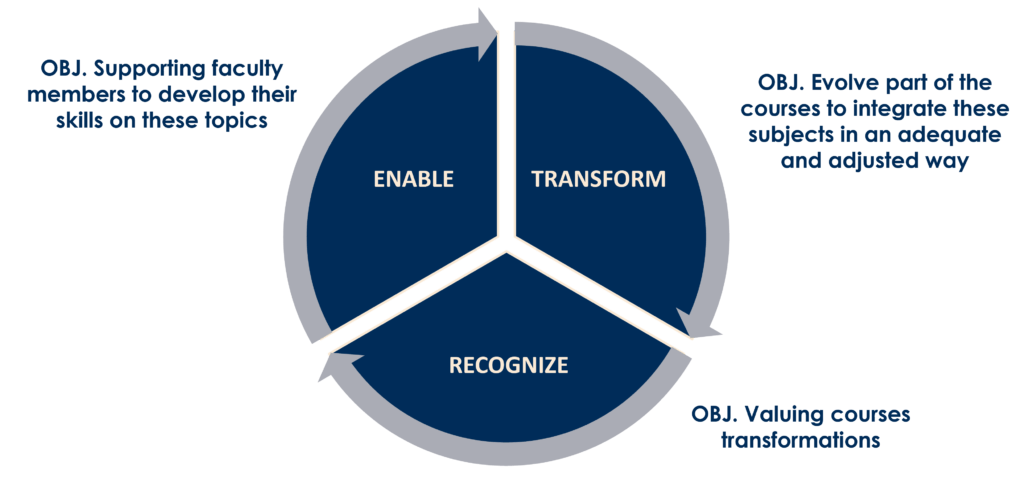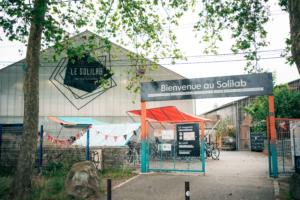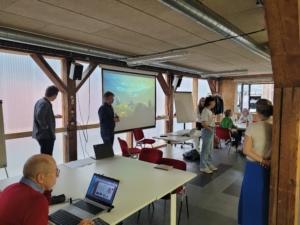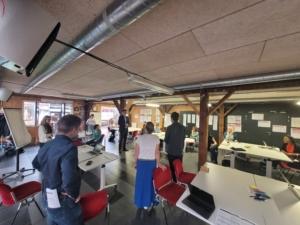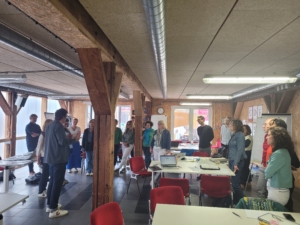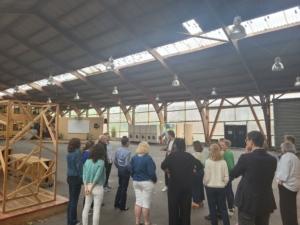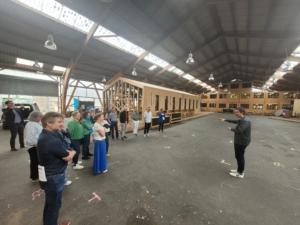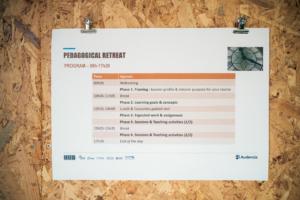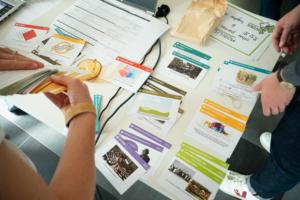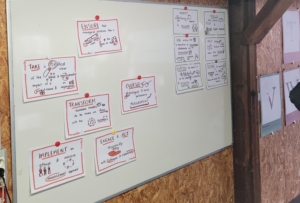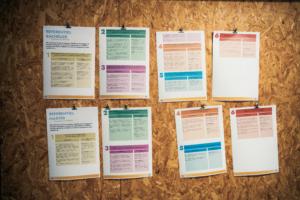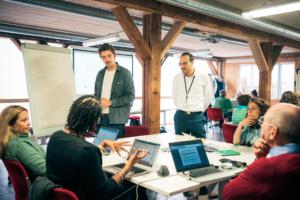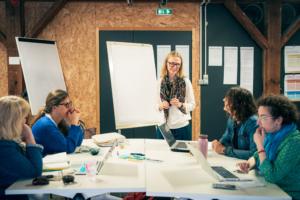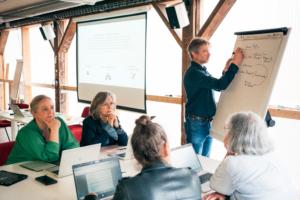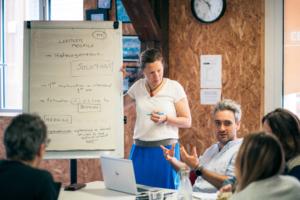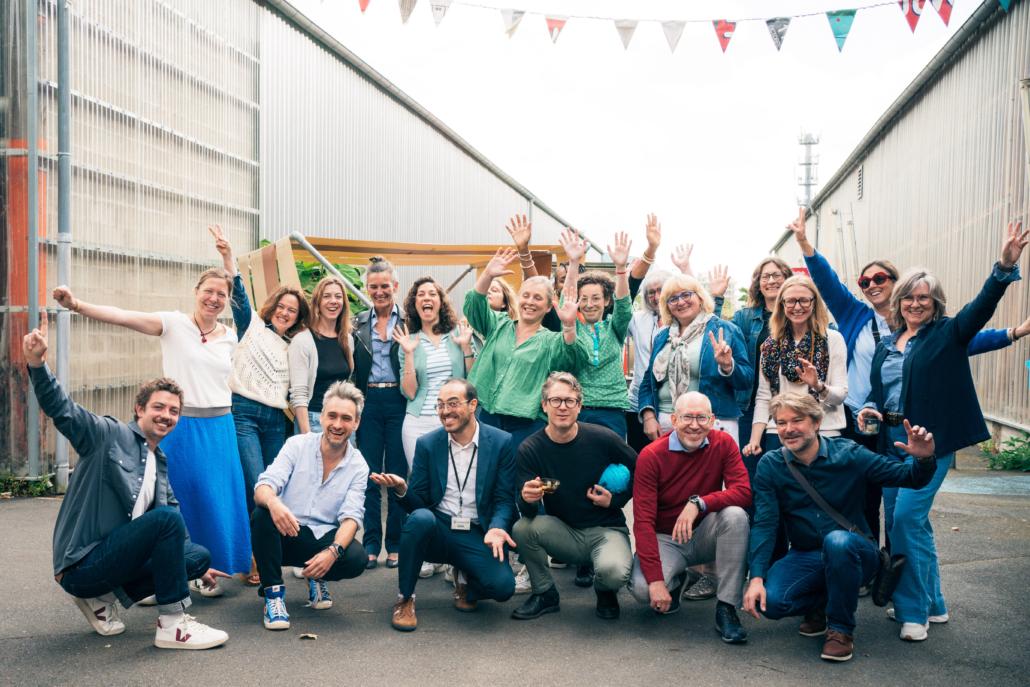Context and objectives
The announcement of “Gaia improvement for future teaching” (G.I.F.T) Project was launched in June 2023.
Its objective: “transforming teaching to integrate the challenges of the ecologically-related transition into curricula”.
About fifty members of the faculty and been then interviewed on the modalities of developing a collective momentum on the issues of transition, and the accompanying needs in the context of this integration. Then a benchmark of practices in this area has been made.
These interviews and the benchmark lead to an action plan is launched at the beginning of 2024 with the first step being the appointment ofan ambassador per department and the systematic scheduling of meetings.
Project components
The project has 3 components: one focuses on developing skills on TES themes (ecological and societal transition) and mapping courses in terms of TES integration (enable), the second focuses on transformation (courses) (transform), and the third on the valuation of transformations and changes (recognize).
The pedagogical retreat in the context of the Transformation (courses)
In order to “transform” the courses, a pedagogical retreat is offered to the members of the Faculty volunteers, whose objective is (re)design one of its courses in order to integrate the challenges of the TSE, that is to transform a specific course or create a new one.
During this pedagogical retreat, based on the Carpediem method (Gilly Salmon*) and a co-animation Gaïa by Audencia – Pôle Learning & Teaching – Campus de la Transition, participants are invited to (re)think their courses through different stages in the perspective of ecological and social transition (TES). Each stage is composed of inspiring introductions, individual reflections, discussions and sharing experiences.
The first pedagogical retreat took place on 5 June 2024 in the premises ofEcossolies on "Ile de Nantes" to accompany some fifteen members of the faculty.
The unfolding of this pedagogical retreat
As a prerequisite, this day does not address the knowledge related to ecological and social transition, Participants were reminded of the resources already available and the importance of having consulted them, namely:
- The selection of content in different formats (books, podcasts, MOOCs, videos) dedicated to the ecological and social transition on the Knowledge Hub (onglet Gaïa).
- The introductory videos, linked to each of your disciplines on the Knowledge Hub site (Gaia tab) Knowledge Hub (onglet Gaïa).
Participants were also asked to read the DD&RS competency framework of the CDEFM, The CEC is a reference framework for identifying the skills related to the ecological and social transition that students will need to acquire at the end of their courses.
Apart from the inspiring breaks that allowed to discover the Ecossolies on the island of Nantes, 4 major sequences marked the course of the day:
- Phase 1. Reflection on the learner profile and the course’s “mission”.
- Phase 2. Definition of learning objectives and concepts
- Phase 3. Projection on targeted assessments and learning efforts.
- Phase 4. Design of teaching activities.
... all of which articulates inspiring times, tools and media for the ecological and societal transition (The methodology of the 6 doors, the “head-body-heart” pedagogical approach, the CDEFM repository, GIFT themes... ), exchanges and discussions...
feedback on the pedagogical retreat
Participants have:
- recognized as an inspiring place for this day,
- all expressed their satisfaction
- appreciated the momentum being engaged
- ...and for many of them asked for more time.
The team in charge of co-animation has thus proposed meetings for complementary exchanges to satisfy this last point. And the next retreat is already scheduled: November 21, 2024!




